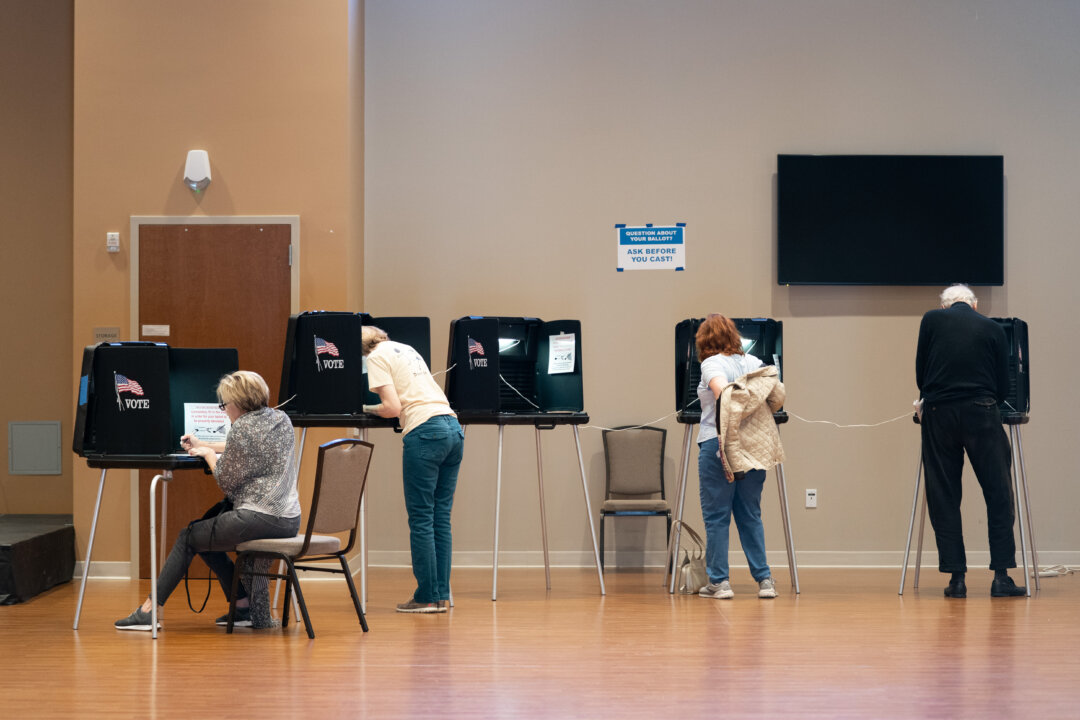North Carolina officials said that the law does not define cards and does not require the cards to be physical.
Digital identification will still be allowed to be used by North Carolina voters, a judge in the state ruled on Sept. 19.
Wake County Superior Court Judge Keith Gregory during a hearing declined a request from state and national Republicans to enter a temporary restraining order blocking officials from accepting digital identification, according to an online court record.
No other information was provided on the docket.
North Carolina law requires voters to present identification when they vote in person. Acceptable forms of identification include driver’s licenses and student identification cards.
The North Carolina State Board of Elections has said in previous memorandums that electronic identification is not permitted.
“An image of a photo ID, either as a photocopy or a photo on a mobile device, is not one of the permitted forms of photo ID when voting in person,” it said in one memo.
In August, the board approved letting students and workers from the University of North Carolina Chapel Hill use digital identification.
The Republican National Committee and North Carolina Republican Party sued the board earlier in August, asking the court to block the updated policy.
The suit claimed that the law does not let election officials “expand the circumstances of what is an acceptable student identification card, beyond a tangible, physical item, to something only found on a computer system.” It pointed to part of the law that defines cards as being printed.
State officials told the court in a brief that state law required the board to approve electronic cards. One law says the board shall approve student cards issued by universities if certain criteria are met, including the cards featuring an image of the student.
The state officials also said that the law does not define cards and does not require the cards to be physical.
In the 3–2 board vote to approve digital identification, Alan Hirsch, who voted in favor of the identification, said he believed “that there’s certainly enough flexibility within the statute for us to approve a digital card as a card.”
“I think the form that it’s in is not really the important thing,” Siobhan Millen, who also voted in favor, said.
Stacy Eggers IV was one of the two no-votes.
“We’re talking about the requirements of the statute that there be an identification card and in my reading of the statute we simply don’t have the authority to do a mobile app in lieu of an identification card,” he said.
Gregory’s ruling is only on the motion for a temporary restraining order and was made after arguments from the parties. The ruling can be appealed, and the case is still ongoing.

